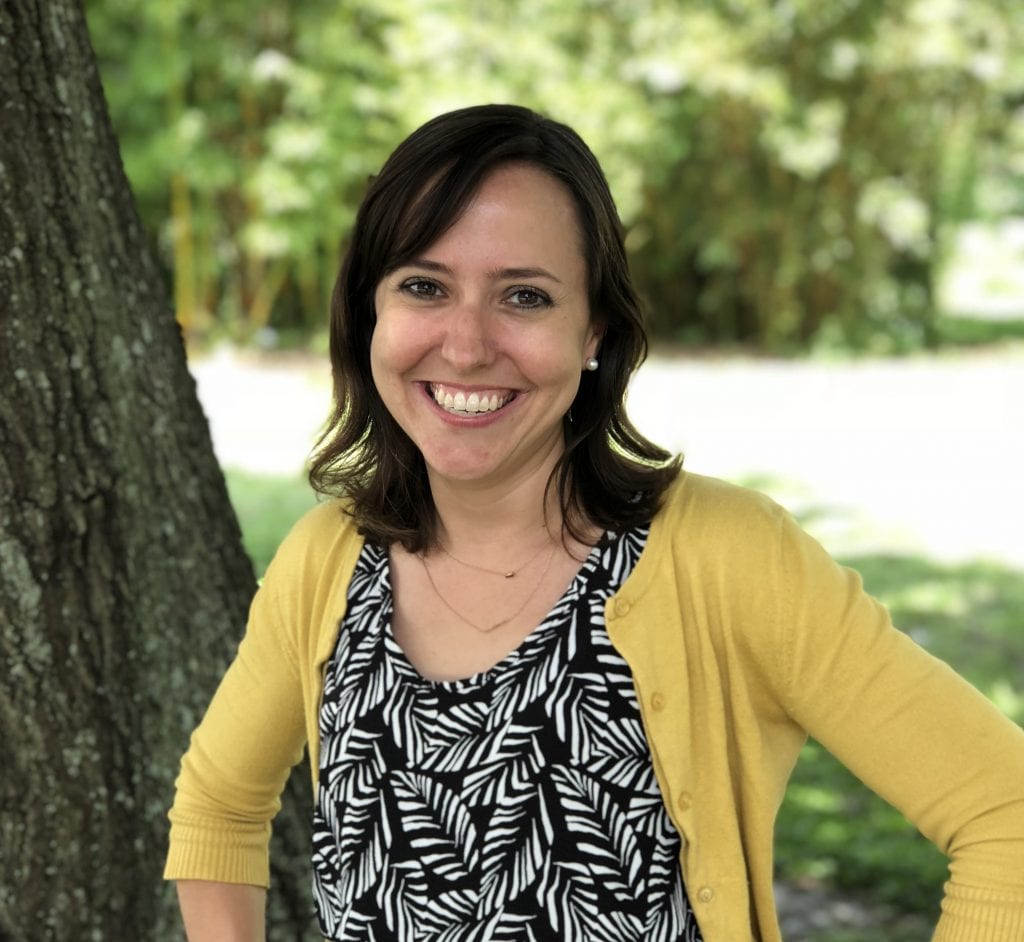Physicist Works to Make Science Accessible

Jackie Chini is one of the UCF Department of Physics’ most well-funded junior faculty. Her awards from the National Science Foundation total over $1 million, and she’s achieved one of the most prestigious awards: The NSF CAREER Award.
It all started in high school in her hometown in rural New Jersey in a physics class.
“I had a really awesome high school physics teacher,” Chini said. “We did a lot of activities and I felt like this was something you could figure out. I like being able to look for patterns and describe the way the world works.”
Chini’s path into physics was sparked by her intention to become a pediatrician since a mentor suggested the physics major was a good route to medical school. While an undergraduate at Drew University, Chini also developed an interest in sociology because she saw an overlap with physics in looking for patterns and mechanisms within social behaviors. Drew University was a unique place to study physics; Chini describes it as “the opposite to UCF” with only 1500 students. It was easy to be a woman in science because the majority of her classmates were women; four of the five students she graduated with were women.
As she transitioned to graduate school, things changed a little bit. She realized she was one of few female students in her graduate program, but that didn’t stop her. She found her support from her research group. Chini said one of the main challenges in being a woman in STEM is the lower representation of women in the field means fewer candidates for female friendships, which were important to her success. Luckily, she found supportive female colleagues and built lifelong friendships.
Combining her interests in physics and sociology, Chini has made her career in physics education research, and she’s been looking at how individuals from diverse backgrounds are supported to participate in physics. In her formative years in high school, she was drawn to physics because of a teacher. If there were more people like that, who are willing to include those who are typically not thought of as potential physicists, what could that do for the field?
While the percentage of women in physics improved over the past decades, it has stagnated around 25 percent in recent years.
“One main barrier to supporting physicists from underrepresented groups is understanding what needs are unmet in the current system that has long served white, able-bodied men,” Chini said.
And that’s what she plans to do with her NSF CAREER Award.
As a part of her five-year CAREER project, conducted with assistance from the American Physical Society, Chini is exploring physics as a community made up of professors, industry people, undergraduate and graduate students and post-doctoral scholars. Everyone has different needs and different ideas. It’s a five-year project and her specific focus is on the experiences of students and early-career physicists with disabilities.
“I’ve had personal experience where others’ knowledge and attitudes of disability have limited the experiences of those close to me. I saw what people thought they could do and could not do,” she said. “What was formative for me was having a student ask for help that I couldn’t give. No part of my training has ever focused on how to help a student with a disability within my class, beyond implementing accommodations as instructed by Student Accessibility Services.”
UCF has an excellent Student Accessibility Services to help students who are already enrolled, but Chini wants to take it one step further: How does the community help those who aren’t yet here or have moved to the next stage in their careers?
Chini and her team of graduate students will start surveying people at APS conferences to describe the community’s knowledge and attitudes about disability and physics. She’s building on prior work in geosciences, where researchers found fieldwork is considered an important component of undergraduate education despite not being required by many geoscience careers. Such attitudes can impact the experience of geoscience students with limited physical mobility, for example.
But, opportunities can open up for students from sharing stories of overcoming obstacles.
“On the one hand, Stephen Hawking is a well-known physicist with disabilities, but he specifically did theoretical physics—what about students with disabilities who want to work in the lab?” Chini said.
The UCF Physics Department has identified and targeted that issue by acquiring a special wheelchair which allowed a student to access laboratory equipment that was not accessible from his standard wheelchair.
“Many of our common practices assume certain abilities. For example, a speaker giving a colloquium may pause and ask the audience to read a question on a slide. If an audience member is blind or visually impaired, they need the speaker to read the question out loud to have access to the information,” Chini said.
“The task of improving access and inclusion can feel daunting,” Chini says. “But it shouldn’t be 100 percent on the person with the disability to figure out accommodations. We need to offload some of that work onto ourselves.”
